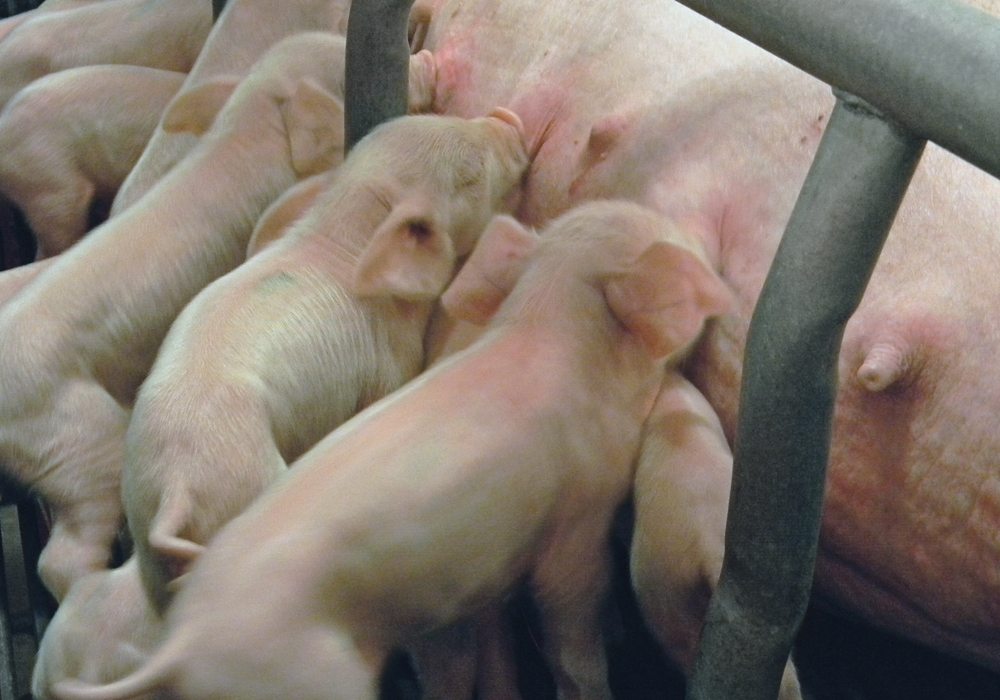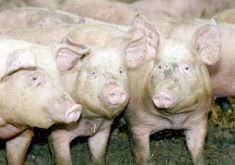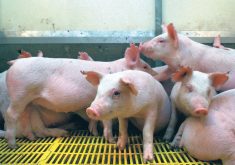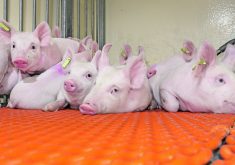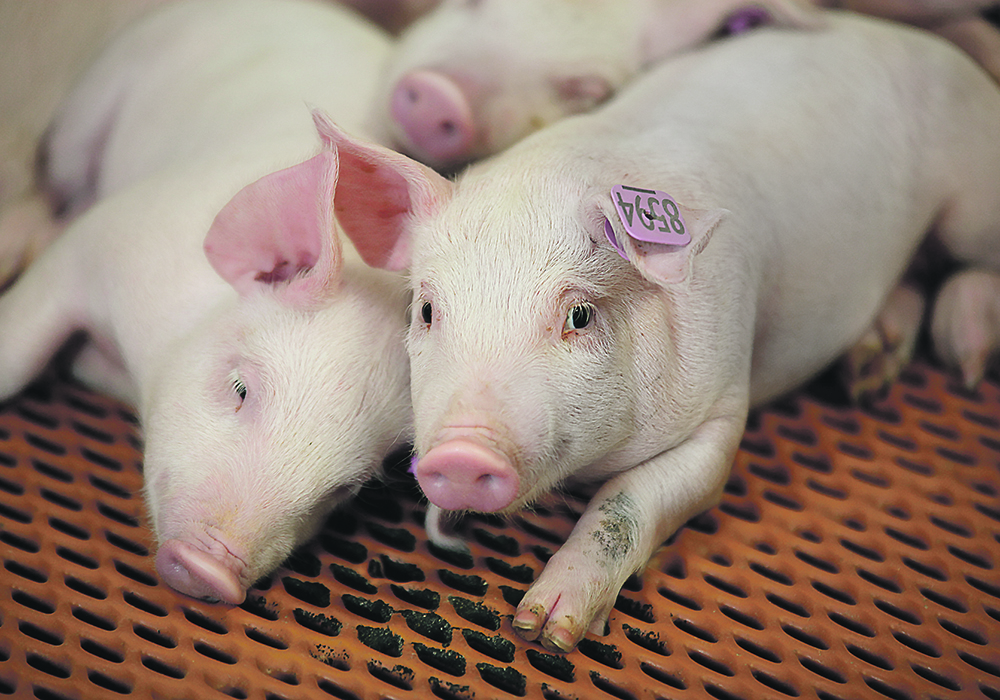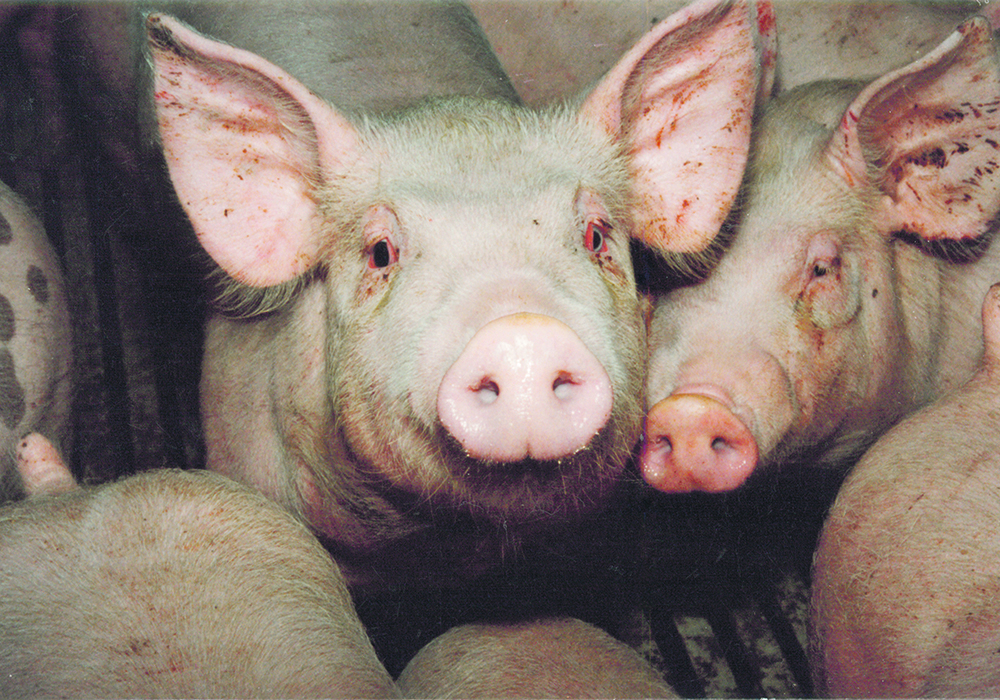BANFF, Alta. — Ontario hog producers have suffered the most among all others in Canada from outbreaks of porcine epidemic diarrhea virus.
The province has had 106 confirmed cases since 2014, the most recent one confirmed Jan. 2 in an Oxford County farrow-feeder operation.
Most of those affected operations have eliminated the virus, and Dr. Greg Wideman, a veterinarian with South West Ontario Veterinary Services, believes the province could eradicate PED if it continues on its current path.
“We maintain the belief and have the goal of doing our part to make Ontario free of PED again. That has not happened so far,” he said.
Read Also

Canadian-bred cow wins World Dairy Expo Holstein show
A cow bred in Saskatchewan, Lovhill Sidekick Kandy Cane, is the Grand Champion Holstein at the 2025 World Dairy Expo.
“But there are very few pig production sites in Ontario that are currently positive for PED. They’re still positive because they’re complicated situations and so the solutions will be complex and collaborative as well.”
Wideman said the number of confirmed cases is “vanishingly low,” considering there has been only one this year and six in 2017.
In 2014, when PED was first found in Canada and was new to producers, 69 operations were infected. That dropped to 16 cases in 2015 and 14 in 2016 as biosecurity measures increased and sow immunity was developed.
In the meantime, hog operations worked to eliminate the virus until there are now few still working toward PED freedom.
The virus is not a reportable disease in Canada and presents no health risk to people. However, it is almost always fatal to young piglets and lowers production levels in older animals. It spreads via the fecal-oral route and can be carried on trucks, footwear, clothing and farm supplies.
Once present, the virus can incubate in a pig within 12 to 36 hours, and it can live in fresh feces for seven days or more.
Options to prevent infection, other than stringent biosecurity, are limited, said Wideman. A vaccine has been developed that can limit pre-weaning piglet deaths while a sow herd is battling the virus, but it does not seem effective at preventing infection.
Wideman said research indicates dead stock and manure spreading are not major infection risk factors.
“There is risk there and the risk needs to be managed, but we’re pretty confident that those two areas will not be the bottleneck to provincial or regional PED elimination.”
However, even if PED is eradicated in Ontario and Canada, it remains endemic in the United States, and there is frequent contact with potentially infected American premises due to pig shipments.
“Although I am very confident that we could eliminate PED from Canada, we will have to be diligent because we’ll be at risk, and in all reality the odd case will occur in the future, just from our contact with the U.S., which is endemically positive,” Wideman said.
Cold weather increases the risk of PED spread because it is so much more difficult to wash trucks and equipment.
PED has not been found in Saskatchewan, Alberta or British Columbia. Manitoba has had 80 infected premises, most of which have eliminated or are in the process of eliminating the virus. The most recent confirmed case in Manitoba was on Oct. 24, 2017.


